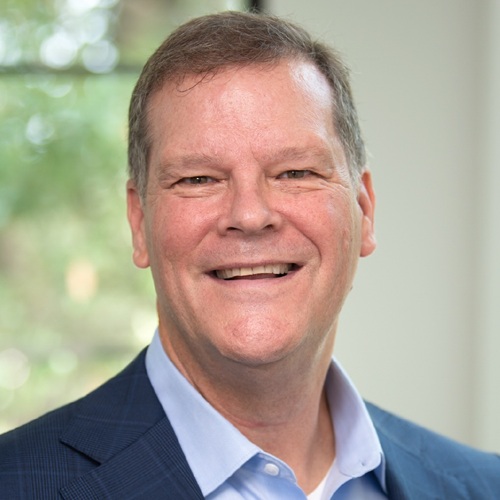Is a 401(k) Really the Best Way to Save for Retirement?
I think it's better to pay taxes on your retirement savings while you are working, than to pay later when you are retired.

Profit and prosper with the best of Kiplinger's advice on investing, taxes, retirement, personal finance and much more. Delivered daily. Enter your email in the box and click Sign Me Up.
You are now subscribed
Your newsletter sign-up was successful
Want to add more newsletters?

Delivered daily
Kiplinger Today
Profit and prosper with the best of Kiplinger's advice on investing, taxes, retirement, personal finance and much more delivered daily. Smart money moves start here.

Sent five days a week
Kiplinger A Step Ahead
Get practical help to make better financial decisions in your everyday life, from spending to savings on top deals.

Delivered daily
Kiplinger Closing Bell
Get today's biggest financial and investing headlines delivered to your inbox every day the U.S. stock market is open.

Sent twice a week
Kiplinger Adviser Intel
Financial pros across the country share best practices and fresh tactics to preserve and grow your wealth.

Delivered weekly
Kiplinger Tax Tips
Trim your federal and state tax bills with practical tax-planning and tax-cutting strategies.

Sent twice a week
Kiplinger Retirement Tips
Your twice-a-week guide to planning and enjoying a financially secure and richly rewarding retirement

Sent bimonthly.
Kiplinger Adviser Angle
Insights for advisers, wealth managers and other financial professionals.

Sent twice a week
Kiplinger Investing Weekly
Your twice-a-week roundup of promising stocks, funds, companies and industries you should consider, ones you should avoid, and why.

Sent weekly for six weeks
Kiplinger Invest for Retirement
Your step-by-step six-part series on how to invest for retirement, from devising a successful strategy to exactly which investments to choose.
If you read any article over the past 30 years on how to save for retirement, you can pretty much guarantee that somewhere in that article, the author will tell you that you should do your best to maximize your contributions to your 401(k) / 403(b) plan if you can. The three reasons for doing so are familiar:
First, a 401(k) / 403(b) contribution represents “forced savings." This is a good thing. With that being said, if you are an adult, then this should not be a big issue for you.
Second, with your 401(k) / 403(b) you receive a tax deduction on your contribution. Often you will hear or read the argument that you should save tax today while you are working and paying a higher tax rate. You should pay taxes later when you are retired and in a lower tax bracket. (We will look into this one a bit later.)
From just $107.88 $24.99 for Kiplinger Personal Finance
Become a smarter, better informed investor. Subscribe from just $107.88 $24.99, plus get up to 4 Special Issues

Sign up for Kiplinger’s Free Newsletters
Profit and prosper with the best of expert advice on investing, taxes, retirement, personal finance and more - straight to your e-mail.
Profit and prosper with the best of expert advice - straight to your e-mail.
Third, you may get a company match on your contribution. That company match represents “free” money. This is a very good thing!
Given these three positive reasons for using your company retirement savings program, whether it be a 401(k) or 403(b) or something else that is similar, why wouldn’t a prudent person jump right on board?
Here’s why.
Reason #1: You create an enormous tax liability
Think about it this way. Let’s say you are saving $18,000 per year in your 401(k) or 403(b). You are deferring income tax on $18,000 each year you deposit the money. But when you retire, you may have built up an account worth $1 or $2 million. That is $1 or $2 million that has never been taxed! And you, or your heirs, will pay tax on every penny of it.
You saved tax on your seed, but you will owe tax on your harvest.
Reason #2: You are NOT in a lower tax rate bracket in retirement
401(k) and 403(b) plan providers will often tell you to take your tax deduction today and pay tax later when you are retired and in a lower bracket. Just one problem: Do you really want to be in a lower tax bracket when you retire?
Think about it. Do you want to retire with a lower standard of living? You save for 30 years, and if you do a good job, you get to retire into the SAME standard of living. This means you will have about the same amount of income, which means the same tax rate. But now your home is paid for, your children are gone, and your tax deductions have vanished.
The taxes you owe increase, and that assumes tax rates do not rise in the future. What do you think the odds are on that?
Reason #3: You are now a target
You might agree that the good folks in Washington, D.C., have a spending problem. But how are they going to pay for it all?
You can bet your last dollar that they all know that there are trillions of dollars sitting in 401(k) and 403(b) plans that have never been taxed. This is like candy to a baby, and they want it. Do you really want the bulk of your retirement dollars sitting in the crosshairs of a government with a spending habit?
What you should do:
1. Only put the minimum in your 401(k) / 403(b) to get your company match. Free money is a good thing. Take advantage of your employer match. Adding in additional funds beyond that is a mistake.
Note: If your company allows your contribution to be put into a Roth 401(k), then by all means, max that out. It is okay to max out your 401(k) into a Roth option, but not the traditional one.
2. Any additional dollars should go into Roth IRAs that will be tax-free for life. If you make too much money to contribute to a Roth IRA, just deposit your money into a non-tax deductible IRA, and convert it to a Roth the next day.
Note: Please verify this approach will work with your accountant. If you already have traditional IRAs out there, it may not work.
3. Look into “maximum-funded life insurance” as a 401(k) option. Be careful on this one, but if you have a really good financial person on your side, they can help you set it up in the proper way.
When it comes to taxes on your retirement plans, Uncle Sam takes a “pay me now or pay me later” approach. You know that in life, it is almost always better to just pay me now. The same is true with taxes and retirement.
It is okay to pay a little now to be tax-free later. In fact, it’s better than okay.
Profit and prosper with the best of Kiplinger's advice on investing, taxes, retirement, personal finance and much more. Delivered daily. Enter your email in the box and click Sign Me Up.

Michael Reese is the founder and CEO of Centennial Advisors, LLC. He is the host of the television show Retiring Well and the author of two books: Retiring Well: How to Enjoy Retirement in Any Economy and The Big Retirement Lie: Why Traditional Retirement Planning Benefits the IRS More Than You. He has been featured in major publications such as Kiplinger, U.S. News & World Report and Yahoo Finance. Reese also is a featured speaker at industry events.
-
 5 Vince Lombardi Quotes Retirees Should Live By
5 Vince Lombardi Quotes Retirees Should Live ByThe iconic football coach's philosophy can help retirees win at the game of life.
-
 The $200,000 Olympic 'Pension' is a Retirement Game-Changer for Team USA
The $200,000 Olympic 'Pension' is a Retirement Game-Changer for Team USAThe donation by financier Ross Stevens is meant to be a "retirement program" for Team USA Olympic and Paralympic athletes.
-
 10 Cheapest Places to Live in Colorado
10 Cheapest Places to Live in ColoradoProperty Tax Looking for a cozy cabin near the slopes? These Colorado counties combine reasonable house prices with the state's lowest property tax bills.
-
 Don't Bury Your Kids in Taxes: How to Position Your Investments to Help Create More Wealth for Them
Don't Bury Your Kids in Taxes: How to Position Your Investments to Help Create More Wealth for ThemTo minimize your heirs' tax burden, focus on aligning your investment account types and assets with your estate plan, and pay attention to the impact of RMDs.
-
 Are You 'Too Old' to Benefit From an Annuity?
Are You 'Too Old' to Benefit From an Annuity?Probably not, even if you're in your 70s or 80s, but it depends on your circumstances and the kind of annuity you're considering.
-
 In Your 50s and Seeing Retirement in the Distance? What You Do Now Can Make a Significant Impact
In Your 50s and Seeing Retirement in the Distance? What You Do Now Can Make a Significant ImpactThis is the perfect time to assess whether your retirement planning is on track and determine what steps you need to take if it's not.
-
 Your Retirement Isn't Set in Stone, But It Can Be a Work of Art
Your Retirement Isn't Set in Stone, But It Can Be a Work of ArtSetting and forgetting your retirement plan will make it hard to cope with life's challenges. Instead, consider redrawing and refining your plan as you go.
-
 For the 2% Club, the Guardrails Approach and the 4% Rule Do Not Work: Here's What Works Instead
For the 2% Club, the Guardrails Approach and the 4% Rule Do Not Work: Here's What Works InsteadFor retirees with a pension, traditional withdrawal rules could be too restrictive. You need a tailored income plan that is much more flexible and realistic.
-
 Retiring Next Year? Now Is the Time to Start Designing What Your Retirement Will Look Like
Retiring Next Year? Now Is the Time to Start Designing What Your Retirement Will Look LikeThis is when you should be shifting your focus from growing your portfolio to designing an income and tax strategy that aligns your resources with your purpose.
-
 I'm a Financial Planner: This Layered Approach for Your Retirement Money Can Help Lower Your Stress
I'm a Financial Planner: This Layered Approach for Your Retirement Money Can Help Lower Your StressTo be confident about retirement, consider building a safety net by dividing assets into distinct layers and establishing a regular review process. Here's how.
-
 The 4 Estate Planning Documents Every High-Net-Worth Family Needs (Not Just a Will)
The 4 Estate Planning Documents Every High-Net-Worth Family Needs (Not Just a Will)The key to successful estate planning for HNW families isn't just drafting these four documents, but ensuring they're current and immediately accessible.